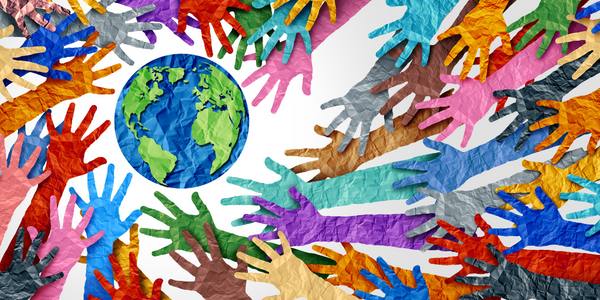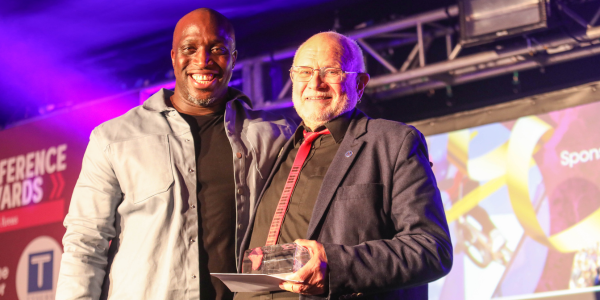
Research shows widespread dissatisfaction with diversity, equity, and inclusion (DEI) in the events industry.
With a lack of transparent data about diversity the ‘global voice of the events industry’, the Events Industry Council (EIC) set about tackling the ‘significant way’ to reach equality.
Diversity, equity and inclusion has long been on the agenda in events, but the latest data shows there is still a long way to go in eradicating systemic racism.
The EIC’s 2022 Equity Benchmarking Study revealed widespread DEI dissatisfaction among event professionals, especially amongst minority groups and women.
The study, released in partnership with the council’s global EIC Equity Task Force, found that 61% of surveyed event professionals identified as white with minimal representation from other ethnicities, especially in senior management, where only 15% are black and with just 6% representation at board level.
The study, which included a series of leadership focus group discussions and an AI-based chatbot survey of 1,404 event professionals, also found that employed event professionals (83% of all survey respondents) are significantly more dissatisfied with DEI in the industry than those who are self-employed or have alternative employment types.
Racism
The report states; “The study findings bring to the forefront the impact of subtle forms of racism and discrimination on the DEI experience in the events industry. Often racism is synonymous with racial slurs, hate crimes, and other actions. However, the difference of the DEI scores between respondents who identified as black in comparison to those who identified as white, draws attention to less obvious but equally detrimental forms of racism – structural and systemic racism.”
It goes on to conclude; “It is evident from this study, along with other research, that existing practices need to be enhanced to build a sustainable DEI experience for event professionals across the industry. The study data on ethnic and gender inclusivity provides a convincing insight into how representation of gender alone is not an assurance of cultural change. Sustainable DEI change is essentially about dismantling systems and processes that maintain the status quo. Add-ons are insufficient. This is a potential challenge and if the DEI experience continues to be the same, it is an indicator of the key messages from this study.”
Case studies highlighted in the research throw light on the experiences of some. One said; “There is nothing blatant, and it is never discussed, but white men hold the highest level positions. Our company is very inclusive of homosexuals and those of different religions, but I believe we have some ways to go before people of colour and women are on the same plane as white guys.”
Jason Dunn (pictured), EIC Equity Task Force co-chair and past chairman of the National Coalition of Black Meeting Professionals said; “Dismal black and brown representation within the events industry presents barriers to diversity and inclusion in leadership and influential positions needed to impact change.“
Respondents who identified as black (16%) rated their DEI experience 11% lower across all four dimensions than respondents who identified as white.
Unconventional practices
The EIC appointed its Equity Task Force in 2020 to address systemic racism and all forms of discrimination in the business events and hospitality industry. The council says the shortage of data already existing in this area is a concern and shows event professionals may be reluctant in sharing their views on lack of DEI in the industry.
Cathy Breden, EIC board chair and VP and CEO of the International Association of Exhibitions and Events Executive, said better representation from minority groups was a “mere statistical activity” without improvements in the experiences of these event professionals.
She said the industry must adopt “unconventional practices” and a contemporary approach to make everyone truly belong.
“It is no longer just about what is done, but more about how it is done that is becoming crucial. More diverse professionals can be recruited, but how they being involved to effect change will make all the difference.”
EIC CEO Amy Calvert said DEI needed to be embraced by organisational leadership to be effective.
“Results from our study underscore that we have a significant way to go, particularly advancing ethnic diversity, gender inclusivity, and equity in leadership and influential positions.”
The latest study is the critical first phase of the EIC’s Equity Acceleration Plan, which Calvert said will enable the council to measure progress and improve its ability to deliver impact and sustain change.
Gender differences
When it came to accountability, male survey respondents were 7% more satisfied with the DEI experience compared to their female colleagues.
More than 75% of the survey’s respondents identified as female, and they were well represented in managerial and senior roles.
But despite having a smaller population, the evidence suggests an influential and dominant male presence. Less than three quarters of the surveyed population identified as male but were 6% more satisfied with the DEI experience than their female colleagues in the industry.
Six out of 10 (61%) female respondents were in ‘senior management’ and ‘board’ job grades but rated their DEI experience significantly lower than male respondents (21%).
Dunn added; “Dispersed power and greater ownership of roles at all levels is rooted in an authentic DEI strategy, which in turn strengthens our industry’s infrastructure and positions us to compete on a global scale. Bottom line, the events industry propels the global economy, through thoughtful high impact events. It’s time for us to apply the same commitment, resources and metrics at an accelerated pace to intertwine DEI principles in all that we do.
“Our task force is committed to addressing these survey findings with actionable and measurable solutions. The journey won’t be easy, but nothing worth having ever is.”
The benchmarking study is phase one of EIC’s Equity Acceleration Plan. Phase two includes a leadership workshop to review the study and shape resources and deliverables for the benefit of EIC membership.
Comments from some survey respondents highlighted the urgent need to bridge the gap between leaders’ perception and employee needs and expectations.
“Me and my colleagues are afraid to speak up. We get penalised, get shut down at the best, be subjected to mobbing at the worst for it,” said one respondent.
Another key aspect of improving DEI is ‘allyship’. The EIC says creating space for constructive dialogue, ensuring that voices of the lesser represented communities are heard and standing up for bias at work, are just some of the ways to enable meaningful allyship.
Tina Wehmeir, EIC Task Force co-chair and AMC Institute president and CEO, said the next phase of the council’s work will focus on the first two dimensions of the DEI experience: ownership and accountability/power of influence.
“To create a sustainable environment of change, we must foster a sense of ownership among everyone,” says Wehmeir.
She says accountability and power of influence is a particularly critical area based on its survey, finding that minority groups showed higher levels of dissatisfaction in larger organisations.
“This further illustrates the need for organisational leadership to connect DEI principals to actual outcomes. It also reaffirms the importance of assembling the men and women of the EIC Task Force. They are change agents.”
The view of Breden, Wehmeir, Dunn, Calvert is that now is the time for discernible actions, not just discourse.
They conclude: “Discrimination has no place in the global business events industry, aspirations must be matched with action, and fostering a diverse workforce and event environments leads to stronger communities and outcomes.”
The full 2022 Equity Benchmarking Study can be found on the Events Industry Council website. The global survey was conducted by Tharoor Associates and Culturelytics from September 2021 to January 2022.
Source: Events Industry News




